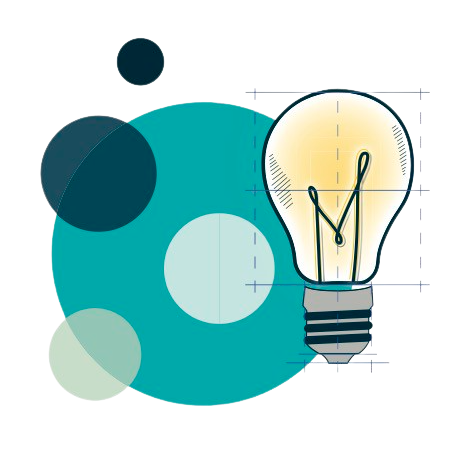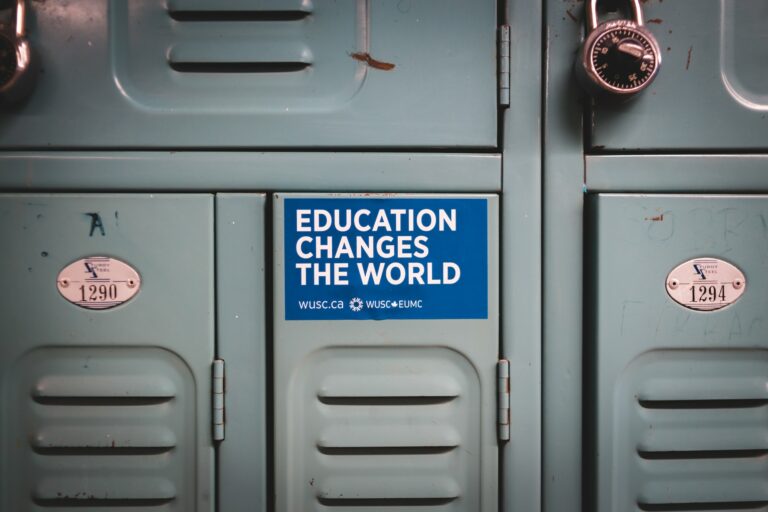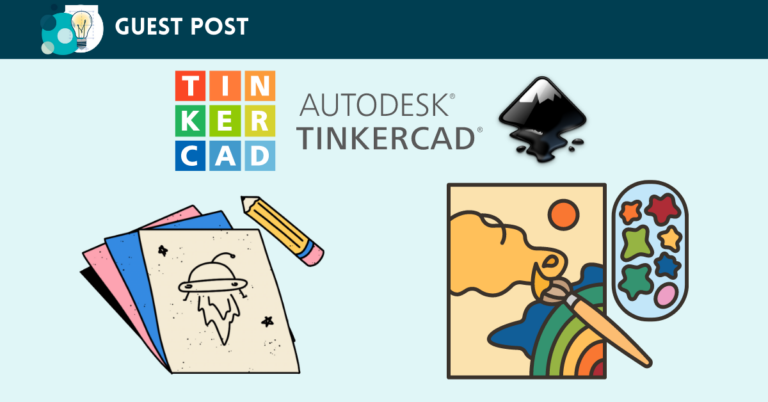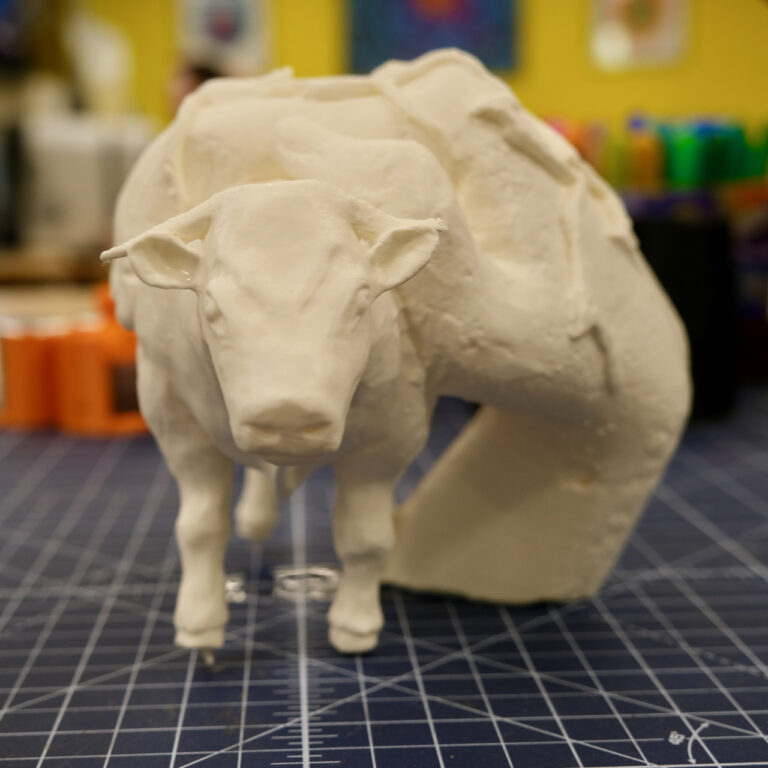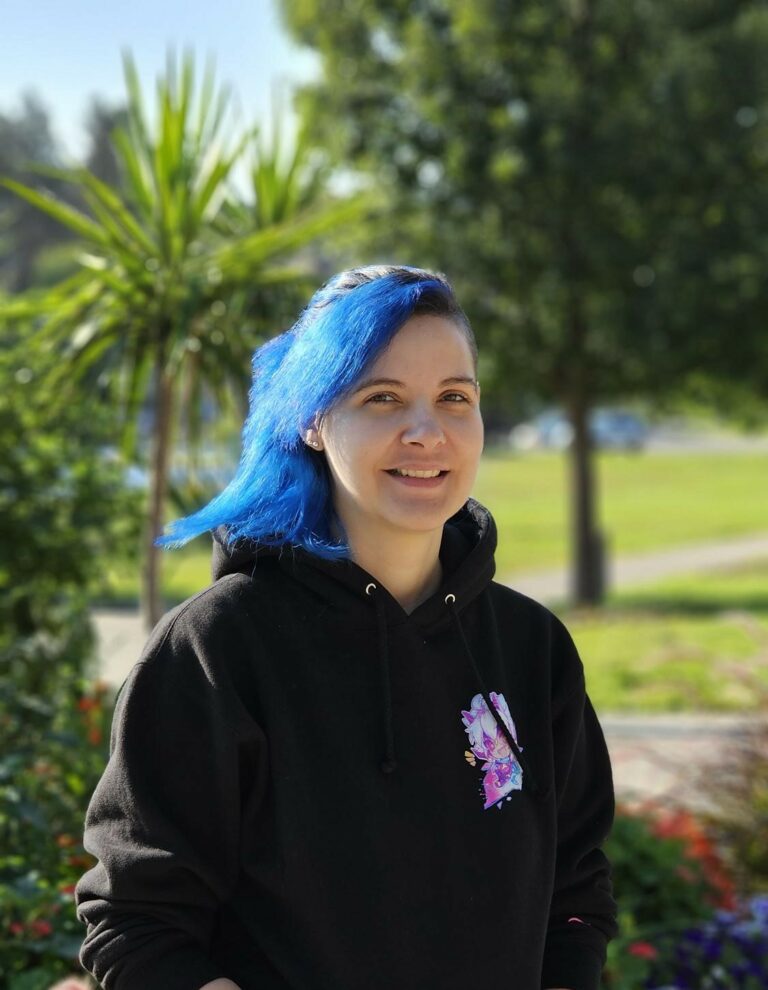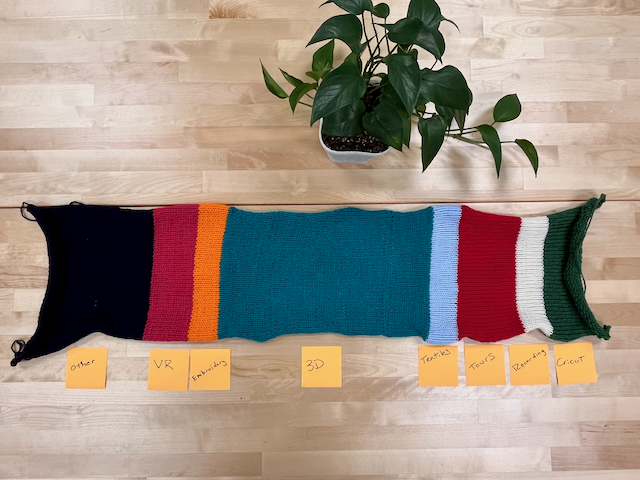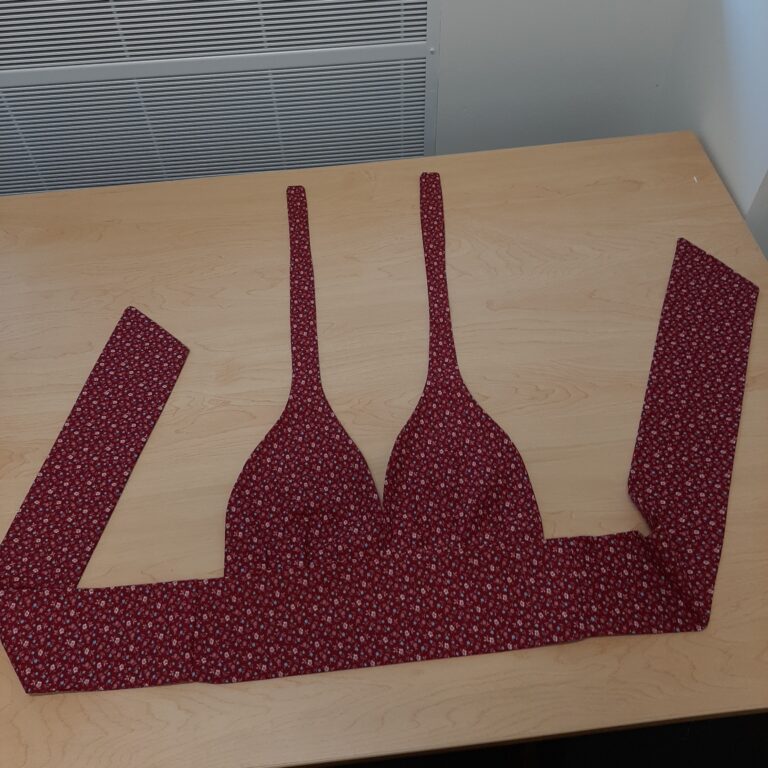Makerspace Sustainability Grant Final Report
Over the past year, Makerspace has been implementing several sustainability projects with the support of a TRU Sustainability Grant. We’ve built a Tool Library that provides access to household, bicycle, and gardening tools to foster a culture of repair and reuse. We’ve created a Community Fabric Stash that is accepting fabric and other textile donations and which will redirect materials that may otherwise go to waste to users who want to make or repair things. Finally, we’ve worked to position ourselves as a “Sustainability Incubator,” that can host events and workshops focused on environmental and social sustainability topics in collaboration with campus groups and Indigenous partners. This report outlines these projects as well as our plans for the future.
Goal 1: Develop a Tool Library of common household, bike, garden, and crafting tools

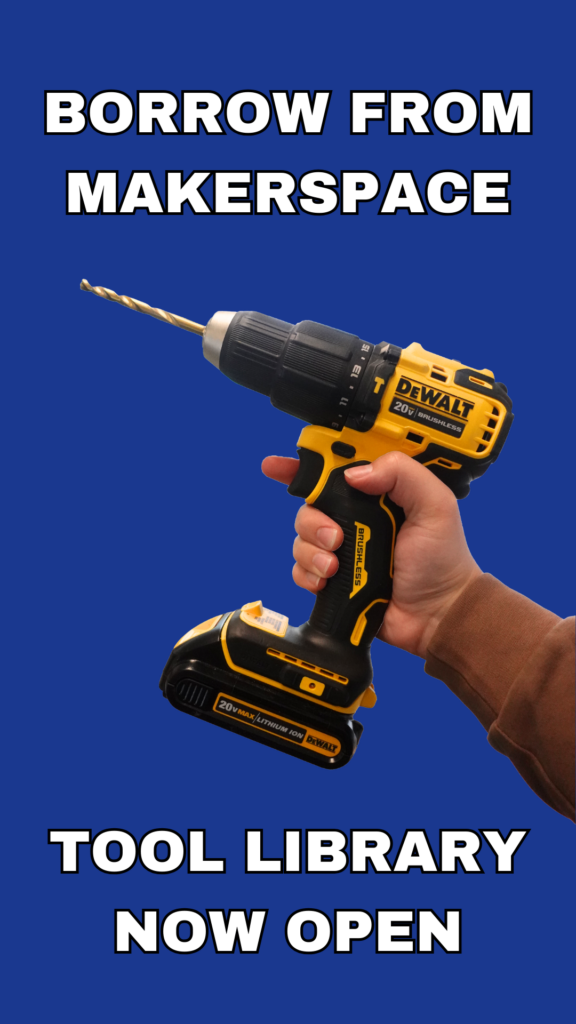
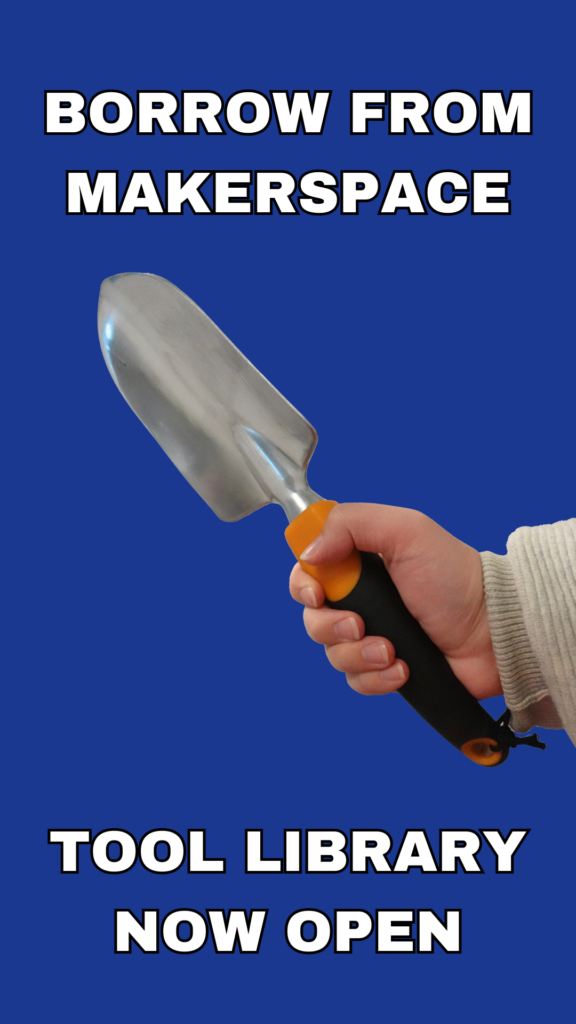
The first goal is to establish a lending library of basic household, bicycle, and gardening tools. This will help foster a culture of repair and maintenance, decrease duplication of purchases, and enhance equitable access to tools for the campus community.
Final Status:
- Tool Library is fully operational with tools purchased, catalogued and ready for lending
Outcomes:
- Conducted a survey of users (22 responses)
- Collected ideas from students and faculty using various methods
- Researched and purchased tools
- Catalogued tools so they can be borrowed by any TRU student, staff, or faculty member with their Library Card
- Developed processes for lending out tools
- Developing promotional materials like posters and social media content
- Developed a page on our website: Tool Library
Outstanding:
- Implement tracking system for tool usage and circulation statistics
- Complete installation of pegboard storage solution for better tool visibility and accessibility
Goal 2: A donation-based supply of free fabric and sewing materials (Community Fabric Stash)
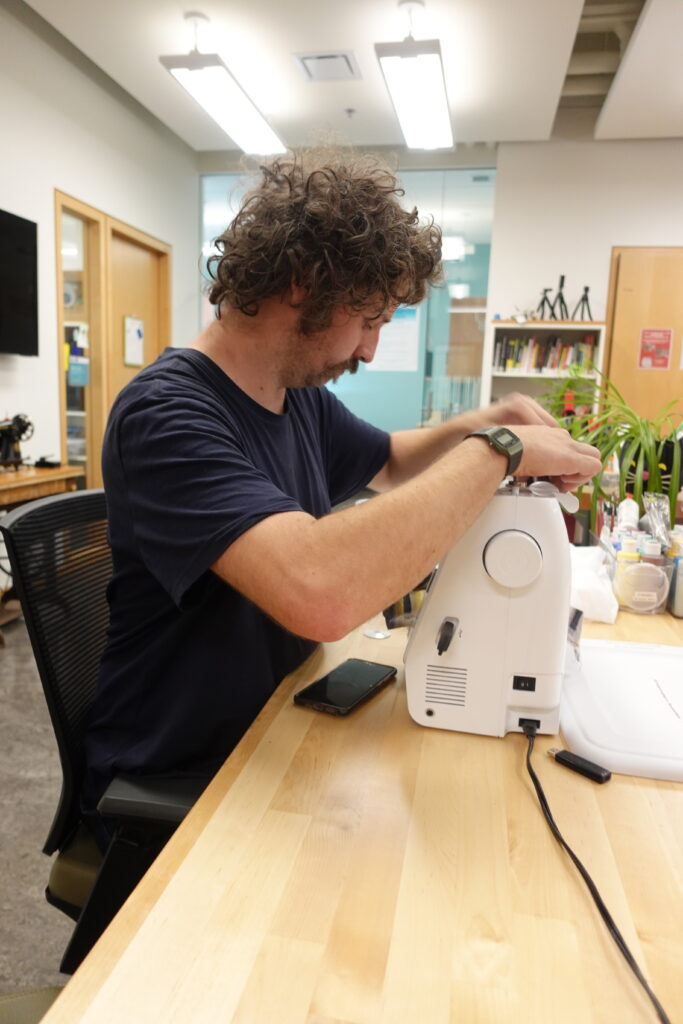

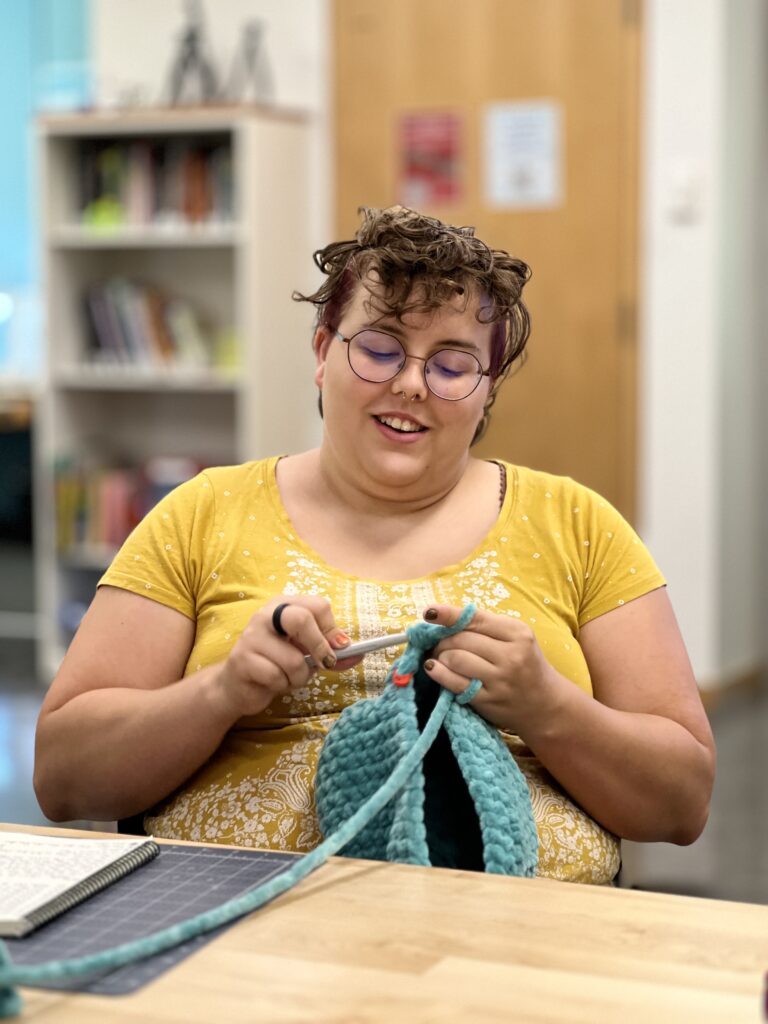
The second goal is to create a fiber bank of donated textiles and other materials for the TRU community to access for completing assignments, prototyping designs, and creating/repairing clothing and other items. This will redirect items that are currently being wasted or underutilized and encourage re-use and repair of clothing and other textiles. The fiber bank also supports social sustainability by reducing barriers to accessing materials and increasing equity
Final Status:
- Currently we are accepting fabric/material donations, with an impressive number received so far.
Outcomes:
- Finalized usage guidelines which are now published on our website
- Secured re-used shelving from the Trades program
- Developed promotional materials, a website, and reached out to local businesses for help soliciting material donations
Outstanding:
- Install shelving units once received from Trades
- Determine tracking method for material usage
- Officially launch and promote for broader usage
Goal 3: Develop the Makerspace as a “Sustainability Incubator” for Campus Groups

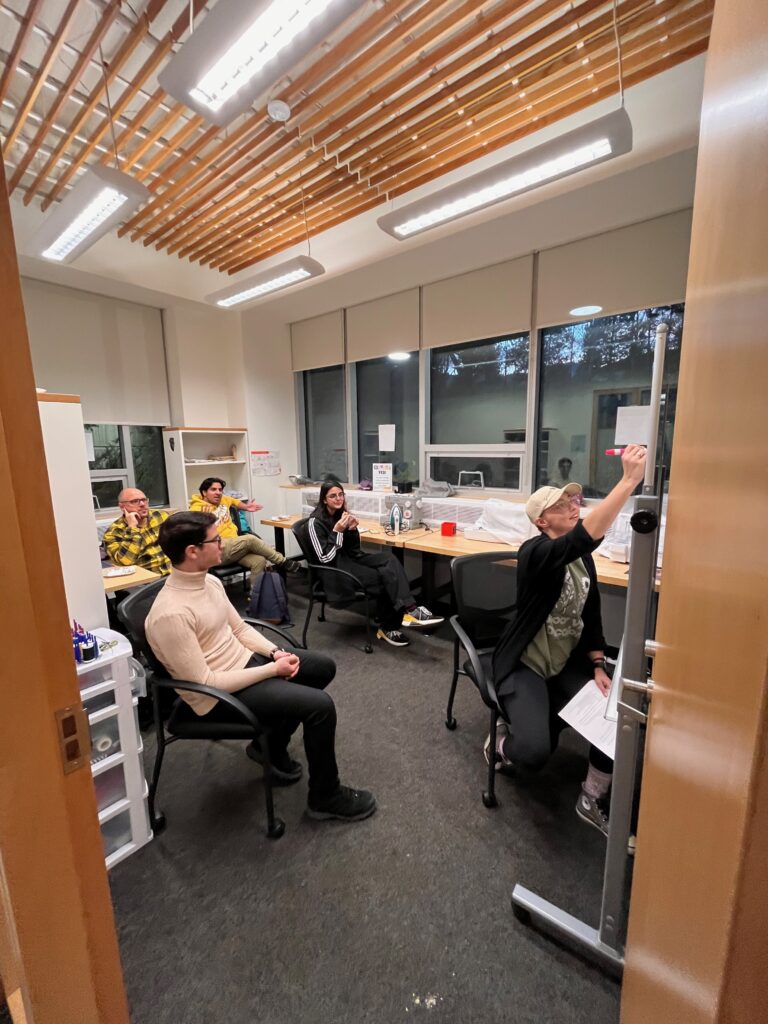

“The third goal is to turn the Makerspace into a “Sustainability Incubator” that campus groups can utilize to pursue their economic, environmental, and social sustainability goals by providing infrastructure and resources and building relationships. This grant will facilitate this by funding 2 Student Makerspace Sustainability Champions who will work with the Makerspace Librarian and staff to develop relationships, pursue outreach activities, and create infrastructure and programming. The goal of this work will be to find ways to make it easier for campus groups to run sustainability programs and initiatives at the Makerspace. They will also assist with developing the Tool Library and Fibre Bank and help develop other resources such as educational materials and programming to encourage sustainability”
Final Status:
- We have procedures for campus groups to use the Makerspace for their events, as well as a website with booking information
- We hosted a number of events related to ecological and social sustainability, including Repair Café events and Indigenous events, and have several more planned for the future.
Outcomes
- Hired two Makerspace Sustainability Champions
- Developed a list of student clubs with ecological or social sustainability mandates
- Developed guidelines for hosting student club events
- Set up a Makerspace room that is accessible from outside Makerspace and secured via a lendable fob for student clubs who want to use Makerspace technologies for events on evenings and weekends
- Developed a website and booking system for organizing club events Host an Event
- We collaborated with TRUSU to host student club leaders to talk about their needs. The feedback we gathered at this event helped us plan how to work with student clubs in the future.
- Ran a Repair Event led by students and in partnership with Kamloops Repair Cafe and the TRU Sustainability Office that was open to all community members.
- Hosted a lunch and brainstorming session with faculty and staff from Indigenous Education, FSD, and the Gathering Place to talk about Decolonizing the Makerspace
- Developed a successful Coyote Grant (in collaboration with my Sustainability Ambassadors and with guidance from Ted Gottfriedson) to help us better welcome Indigenous students and support Indigenous programming in Makerspace
- Purchased books related to sustainability for the Makerspace Book Collection
- Hosted Indigenous workshops like beading, featherwork, and moccasin making
Outstanding:
- Finalize and share outcomes from previous events with student unions
- Continue developing promotional materials for sustainability clubs
Conclusion
Sustainability work is never done alone, and as the Makerspace Librarian, I am thankful for the contributions of many individuals. I appreciate the TRU Sustainability Office for their continuous efforts to create real, practical change on campus. I am grateful to our Makerspace Sustainability Student Champions, Cicyetkwu Bennett-Dunstan and Melissa Kelm, whose gentle humor and directness taught me valuable lessons about approaching the Indigenization aspects of social sustainability. The wonderful Makerspace staff – Olivia, Sarah, Valentine, and Dayun – provided essential support through research, receiving donations, and more. Library Technicians Meg and Leah helped catalogue the many unique tools acquired over the past year. The TRU Library’s administrative team, including Associate University Librarian Julia, University Librarian Tania, and Administrative Assistant Jody, assisted with the administrative and financial aspects of this grant. Their advice, support, and encouragement were invaluable throughout this process.
This journey towards sustainability needs to be an ongoing and collaborative process. While certain parts of the grant are still being wrapped-up, a solid foundation has been established that will help us support users in pursuing their sustainability related goals. The Tool Library, Fabric Stash, Indigenous programming, and Sustainability Incubator initiatives will continue to evolve and expand, hopefully engaging a broader cross-section of students, staff, and faculty. With these pieces and relationships in place, I’m excited about what comes next and how we can continue to support the sustainability goals of others at TRU in the future.
